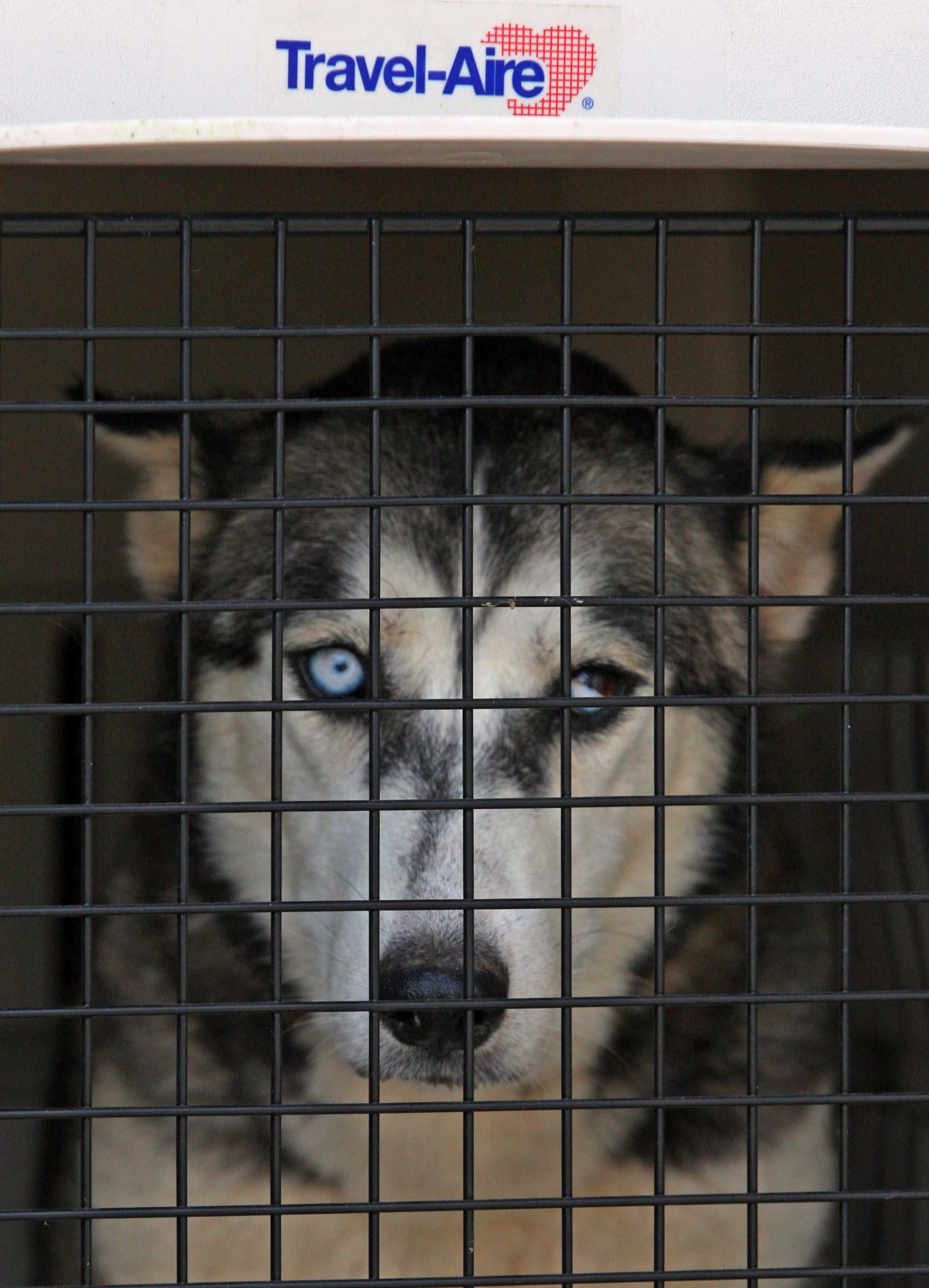
By: ANNIKA SIAL
Staff Writer
Down the street from me, there was a pet store. Neon signs flash in the windows – “PUPPIES FOR SALE!” – and if you step inside, you can feel the pressure of a million eyes upon you. “They’re all so cute, Mommy, I don’t know what to do!” a little girl squeaked. They picked a fluffy blonde puppy and brought her home with treats and toys and gazes filled with love.
Two weeks later, the same mother who had adopted that golden puppy returned. “You charged us over a thousand, and on top of that I paid HUNDREDS of dollars in medical fees for that dog–”
“Ma’am, we showed you the paperwork when you adopted her. She’s from a reputable breeder–”
“Maybe that’s what you said, but when we showed that paperwork to the vet,” she said. “That the dog was from a verifiable hellhole!”
And she was right.
Puppy mills are essentially dog-producing factories. Female dogs are treated as reproduction machines and are forced to continually give birth to more puppies, without regard to inbreeding or their own health and safety. They and their puppies are typically deprived of proper medical care, socialization, adequate space, and even basic needs like food and water; many of the puppies born in the mills never even leave their wire cages until they are sold. Many of the puppies are sold to stores or owners via the internet have physical diseases such as parasites and hereditary issues like congenital heart disease. To prevent further abuse, the national government needs to regulate and enforce regulation of the conditions in which puppies are commercially bred.
The harms caused by puppy mills are well-documented and apparent. In a study comparing the psychological and behavioral characteristics of former breeding dogs with pet dogs, researchers McMillen, Duffy, and Serpell found that the former demonstrated significant psychological harm, including more compulsive behaviors, a greater sensitivity to being touched and picked up, and elevated levels of fears and phobias. A separate study published in the Journal of the American Veterinary Medical Association showed that dogs from pet stores demonstrated greater aggression towards family members, fear of other dogs, and separation anxiety. In general, pet store puppies were more likely to have behavioral problems than puppies from small noncommercial breeders.
While it seems like common sense to ban this cruel breeding and sale of dogs, the reality is that the law does little to address the issue or inform unwitting consumers. In an undercover investigation of the Pick of the Litter puppy mill, CAPS (The Companion Animal Protection Society) captured photos of emaciated and wounded dogs in the mill. Their investigation report described dogs who suffered from seizures, pus-covered or infected sores, protruding eyes, and other ailments equal or greater in severity which were noted but left untreated. Dogs which the owners of the mill considered to be irreparably damaged were euthanized by .22 bullets or left to waste away until death. Despite these inhumane conditions, the mill owner’s license was only revoked about 15 years after investigations of the mill began in 1997. In fact, a July 2008 inspection found that the mill did not violate the Animal Welfare Act, revealing the most fundamental challenge with dismantling puppy mills. The law marks out the barest of guidelines for breeders and lends itself to the maltreatment of dogs and deception of customers, who are largely unaware of the torturous nature of the industry. As regulation remains limited and the abuse in puppy mills largely occurs behind the scenes, advocacy against buying puppies from pet stores is one of the only ways to stand against the breeding industry.
Fortunately, California has taken a step forward in trying to regulate the kennel industry. Assembly Bill 485, passed unanimously through the state legislature, will limit the sale of pets from breeders and require pet stores to obtain for-sale pets from non-profit organizations. Assuming the bill is signed into law by the Governor, it will be the first to regulate the breeding industry at the state level. Although AB-485 is a step in the right direction, the industry will continue to thrive unless the conditions in which puppies are bred are regulated on a national level; puppy mills sell animals across the country and even abroad.
Notably, prominent organizations like the American Kennel Club (AKC), Pet Industry Joint Advisory Council, and California Retailers Association have come out against the bill. The AKC claims that the bill violates “… the freedom of individuals to choose from a variety of pets and to find one that is the right match for their lifestyle.” Interestingly, the AKC also makes about $23 million per year from pet registrations, primarily from pet stores which can charge higher prices for dogs comparable to those in shelters. Essentially, these organizations are sanctioning puppy mills and perpetuating the idea that pets can be sold as products and treated like cash crops.
According to The Puppy Mill Project, there are currently an estimated 10,000 puppy mills in the United States and over 2 million puppies are bred in mills each year. These puppies are rendered unadoptable by regular standards, with unparalleled physical and behavioral problems, and often end up in local shelters. Even though we call dogs “man’s best friend”, the failure to clearly define puppy mills as animal cruelty and a violation of natural human ethics marks a tacit approval of dog abuse.
Dogs raised in the kennel industry live short but painful lives. They come into the world kicking and screaming; they come out of it with their heads ducked and their tails between their legs. With luck, they find loving owners, but without it, they die without ever even having seen the light of the sun or breathed in the fresh air outside which doesn’t smell of their own urine. Puppy mills, increasingly shrouded in darkness as animal welfare records are deleted from the USDA’s website, thrive by treating puppies as commodities to make a profit from rather than living beings. Ultimately, unwitting consumers remain complicit in this abuse. When millions of puppies are suffering each day because of customers’ ignorance, “not knowing” just isn’t a good enough excuse.
The only way to end the cruelty is to advocate against it and the organizations that support it. Share information about mills on social media. Adopt pets from shelters. End the abuse.














supportouramericanwarheroes.wordpress.com • Feb 24, 2018 at 9:53 am
Reblogged this on STOP ABUSE TOWARDS ANIMALS.